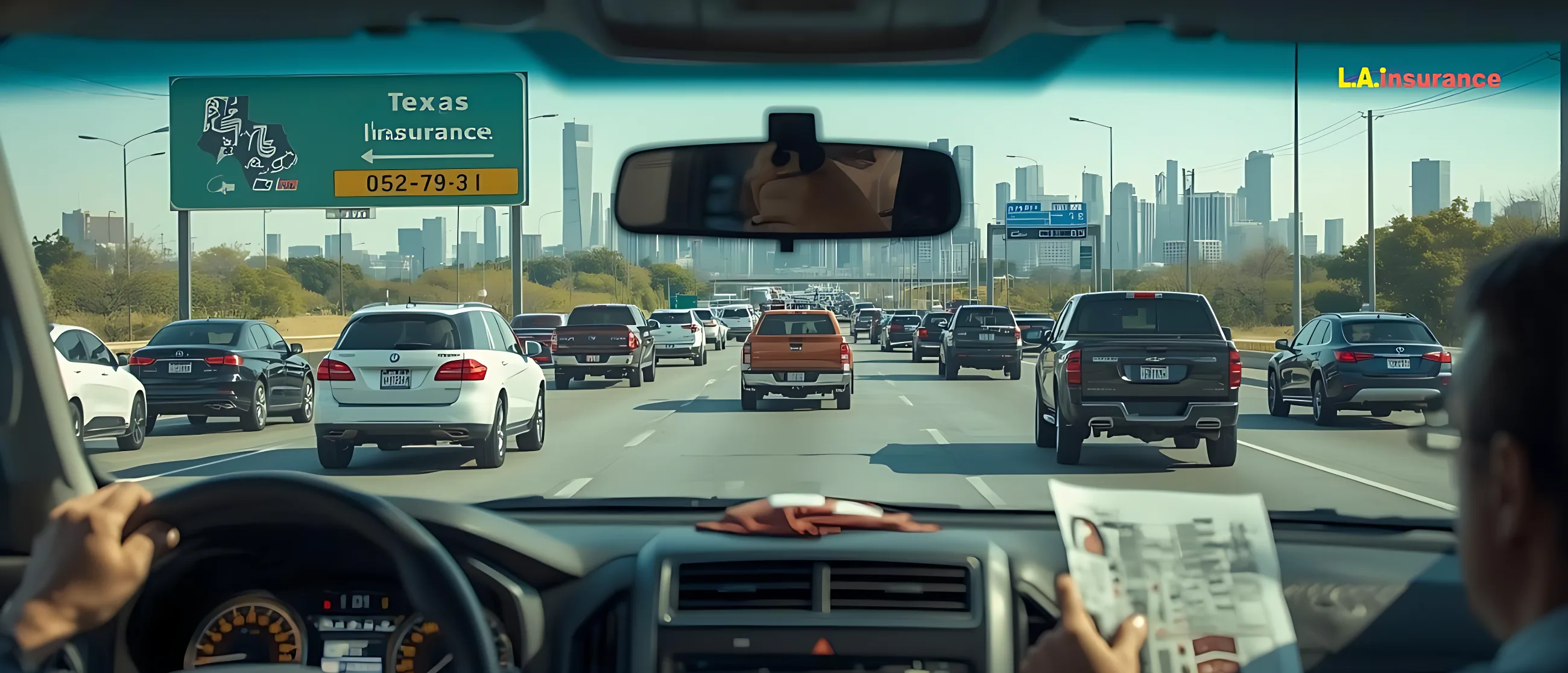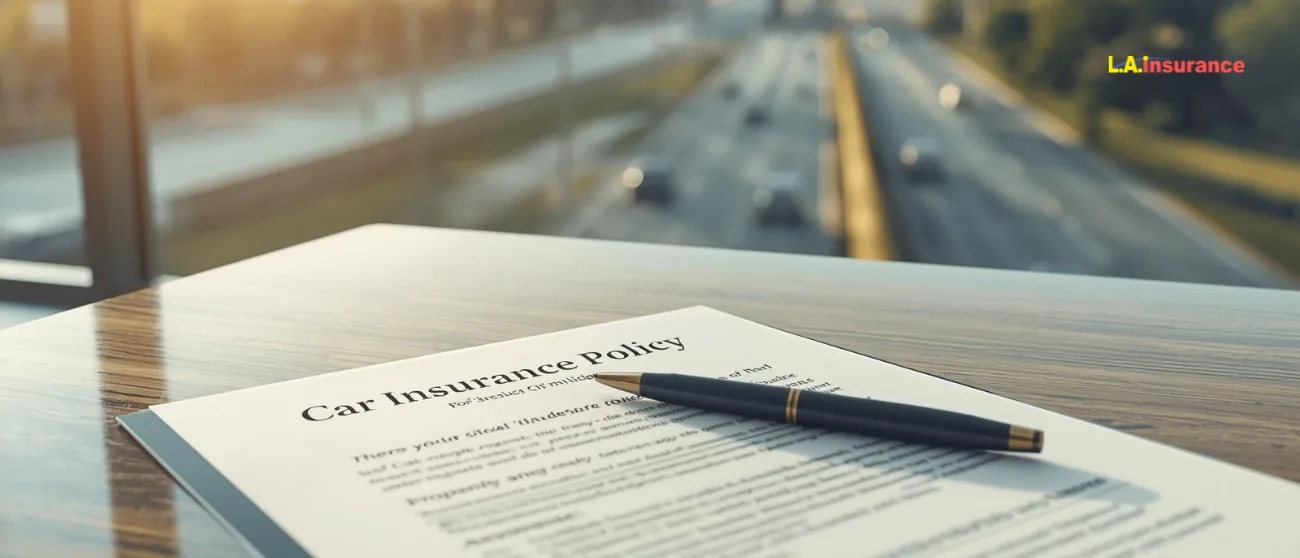
Publish Date: 25-12-2024
Auto Insurance
Last Updated: 17-12-2025
How to Insure a Car for Your Elderly Parent?
Insuring a car for your elderly parent doesn’t have to cause you any trouble. As they age, their driving habits change, and so do their insurance needs. To keep them fully protected and avoid overspending, first identify the coverage they truly need for their situation. Then explore savings and discounts. Do they still drive regularly or only use their car on rare occasions? It would be best if you could learn this information and customize car insurance coverage based on it. For those who drive very little or no longer at all, there are also caregiver car insurance options that can help cover family members or caregivers driving on their behalf. Keep reading to learn anything and everything about how to insure a car for your elderly parents.
How Can You Assess Your Parent’s Driving Needs and Situation?
As your parents get older, their driving habits evolve. So, you need to realize their present needs and situations. We recommend making no rush and taking time to evaluate how often and confidently they drive. Doing so will not only help you find the right kind of car insurance coverage but also the most affordable one. Here’s how you can assess your parent’s driving needs and situations.
Evaluate Current Driving Ability and Frequency
Start assessing their driving habits first. Ask yourself a few important questions:
- How often does your parent drive, and where?
- Are they comfortable driving at night, in busy traffic, or on long trips?
- Have they experienced any recent close calls or fender benders?
These questions will give you a clear picture of their driving lifestyle. If your parent drives frequently and comfortably, they may still need full coverage car insurance. However, if they only take occasional, short trips or avoid driving in certain situations, a reduced or usage-based insurance plan could be more appropriate.
Try to Figure Out Future Driving Requirements
If you consider their age, and how effectively their body and mind will function in the near future, you can choose a more sustainable and long-term insurance coverage for them. As they age, some parents may gradually reduce their driving, especially if health changes affect their confidence and reaction time which in most cases do.
Remember, as they age, several health issues can impact their ability to drive safely. These are:
- Vision Impairment (It can make it difficult to see road signs, pedestrians, and other vehicles)
- Hearing Loss (Can make it difficult to hear sirens, horns)
- Slower Reaction Time (Aging can slow down reflexes and make it harder to react quickly in unexpected situations on the road)
- Mobility Concerns
And there are many more health issues that can impact safe driving. This shift may be a good time to discuss options like caregiver car insurance if they need support with transportation. Always consider these future needs which allows you to adapt coverage over time and make sure your loving parents have the protection that best fits their situations.
It's Time to Choose the Right Type of Coverage
After you complete your assessment, the next thing you’ll do is to choose the right coverage for them. There are different types of car insurance coverage available. If your mom and dad still driving more often, you should go for full coverage which typically includes comprehensive and collision coverage along with liability coverage. So, let’s look at the main options to consider.
Liability Coverage
Liability coverage is mandatory in almost every state in the U.S.A. This coverage pays for damage your parent might cause to others if they’re at fault in an accident. Since liability covers medical expenses and property damage for others involved, it’s critical to have – even if your parent only drives occasionally. Most states require a minimum level of liability insurance. However, it’s often wise to consider a higher limit. As a reference, you can see the auto insurance requirements for Michigan State.
Comprehensive and Collision Coverage for Seniors
Apart from liability coverage, everything is pretty much considered optional coverage. With comprehensive and collision coverage, you go a step further by covering your parent’s own vehicle. Collision insurance will pay for damages to their car in an accident, regardless of fault. Comprehensive insurance, on the other side, protects against non-accident events like theft, vandalism, natural disasters, or even hitting a deer.
If your parents drive frequently or own a valuable car, these coverages can be reassuring. But if they rarely drive or their car isn’t worth much, you might save money by reducing or dropping collision and comprehensive coverage.
Usage-Based and Low-Mileage Insurance
Usage-based insurance is perfect for seniors who don’t drive often. This type of plan adjusts premiums based on how much the car is actually used, which can lead to significant savings if your parent only drives short distances or occasionally.
A few auto insurance companies offer low-mileage discounts as well. This can reduce the rates if annual miles stay below a certain threshold. For elderly parents who primarily use the car for errands or local trips, this is an efficient way to cut costs without compromising financial safety.
Medical Payment and Personal Injury Protection
Lastly, medical payment (MedPay) and personal injury protection (PIP) are especially valuable for seniors. In the event of an accident, these coverages pay for your parent’s medical expenses, regardless of who is responsible for the accident.
For parents on a fixed income, this ensures they won’t face overwhelming medical bills after an incident. PIP may also cover other costs, like lost income or essential services, which can be helpful if an injury limits their independence.
In short, choosing the right mix of coverage for your elderly parents is all about balancing protection and affordability. So, you should consider these coverage options carefully. Doing so can make sure your parent has the perfect coverage depending on their unique needs.
How Much Does Car Insurance Cost for Seniors?
Now, the question is how much it might cost you to purchase coverage for your elderly parents. Since age is one of the key factors in determining car insurance rates in the U.S.A., the price can vary widely. For instance, auto insurance providers think young drivers are most prone to car crashes and so they see them as high-risk drivers. As a result, they face the highest auto insurance rate.
Apart from age, there are multiple factors including your location, driving record, credit history, gender, and so on can impact your car insurance premiums. In the case of seniors, who are aged between 65 and 80, car insurance costs an average of 2,150 a year, according to Forbes.
Besides, Bankrate research shows the average cost of full coverage car insurance for seniors is as follows:
Age | Average Full Coverage Costs for Males Per Year | Average Full Coverage Costs for Females Per Year |
40 Year Old | $2,465 | $2,451 |
50 Year Old | $2,311 | $2,185 |
60 Year Old | $2,234 | $2,206 |
70 Year Old | $2,403 | $2,366 |
Note that these costs can still vary extensively depending on the driver, the city or state they are living in, the history of driving records, and so on. So, to find the most affordable insurance agency for your elderly parents, we recommend getting quotes from multiple insurance providers. Also, you should look for discounts and other cost-saving options as well.
Auto Insurance Discounts and Cost-Savings Options for Your Elderly Parents
Finding discounts is a smart way to make insurance more affordable for your elderly parent. Many insurance companies offer various discounts, particularly for senior drivers, low-mileage drivers, and those who bundle policies. Here’s how these options can help reduce costs without compromising on coverage.
Senior and Safe Driver Discounts
Many insurance providers offer special discounts for senior drivers who maintain a safe driving record. If your parent has avoided accidents or traffic violations, they may qualify for reduced premiums. Also, some companies offer discounts for seniors who complete a defensive driving course. These courses refresh driving skills, teach safety strategies, and can sometimes knock a percentage off the premium. So, encouraging your parent to stay safe on the road can lead to meaningful savings.
Low Mileage and Usage-Based Discounts
For elderly parents who don’t drive often, low mileage or usage-based insurance can offer substantial savings. Many insurers provide discounts if annual driving falls below a set number of miles. Usage-based insurance goes a step further by tracking actual driving habits, allowing premiums to adjust based on distance and time spent on the road. This approach can benefit seniors who mainly drive short distances, reducing costs while keeping essential coverage.
Bundling Policies for Maximum Savings
If your parent has other insurance needs— such as home, renters, or health insurance—consider bundling these policies with their car insurance. Many companies offer multi-policy discounts that can add up to significant savings. Bundling also makes it easier to manage all policies under one account, simplifying billing and claims. This can be a particularly attractive option if you or other family members use the same insurer, as some providers extend family discounts for shared policies.
Regularly Review and Manage Policy
Insurance needs change over time, especially as your parent’s driving habits change. Regularly reviewing and adjusting their policy ensures they have the right protection without overpaying. Here’s what you need to keep in mind when managing their coverage.
Assessing and Adjusting Insurance Coverage
To keep coverage relevant and cost-effective, it’s wise to review the policy at least once a year. Check if the coverage still matches your parent’s driving habits. If they drive less frequently or only short distances, consider reducing comprehensive and collision coverage. On the other hand, if health changes mean they need additional protection, update the policy according to their needs. Regular reviews help ensure they aren’t paying for coverage they no longer need—or missing out on coverage they now require.
Adding a Family Member to an Existing Policy
If your parent occasionally drives with a family member as a backup, Adding that person to the policy might make sense. For instance, if your mom has moved in with you and sometimes drives your car, adding her to your insurance policy can be more affordable than maintaining two separate policies. However, keep in mind that if your parent has had accidents or traffic violations, this may raise your premiums. Speak clearly with your insurance provider about who mostly drives the vehicle and where it is stored. This helps ensure that your coverage is accurate and budget-friendly.
Also, Consider Special Car Insurance for Classic and High-Value Cars
If your parents own classic or high-value cars, you better go for specialized coverage. Classic car insurance often includes benefits like agreed value coverage, which means the insurer pays a set amount in case of a total loss. If the car is rarely driven but holds sentimental or investment value, classic car insurance can be a good option for it. However, regular reviews of this coverage ensure it still aligns with the car’s value and your parent’s usage.
Insurance Options for Non-Driving Parents
When your mom and dad no longer drive but still own a car, managing their insurance becomes a different task. Even if they don’t use the vehicle, there are coverage options to keep it protected. Let’s look at these options here.
Minimal Coverage and Storage Insurance
If your parent’s car is parked but rarely, if ever, used, consider minimal liability or storage insurance. Many states require a certain level of liability insurance for cars even if they’re not driven, so minimal coverage can satisfy these legal requirements at a lower cost.
Storage insurance, on the other hand, protects the vehicle from risks like theft, fire, or damage while it’s parked, but it doesn’t cover accidents on the road. This option is often more affordable than full coverage. This also makes it ideal for non-driving parents who want to keep their car without paying for unnecessary protection.
When to Consider Dropping Insurance Completely
In some cases, it may make sense to cancel the insurance entirely. If the car won’t be driven and there are no plans for future use, dropping insurance could save money. You just make sure it’s stored safely and check your state’s regulations on insuring parked vehicles. However, you can also consider any sentimental or future plans for the car. If there’s a chance one of your family members or caregivers may need to drive it later on, maintaining some form of coverage can keep you on the safe side by eliminating the coverage gap.
How to Insure a Car for Seniors or Elderly Parents: The Final Takeaways
- Assess your parent’s driving habits to customize their insurance needs and coverage accurately.
- Liability coverage is compulsory, but consider reducing comprehensive and collision if driving is infrequent.
- Usage-based and low-mileage insurance can cut costs for elderly parents who drive less.
- Regularly review policies to ensure they match changing driving needs and explore bundling for savings.
- Minimal or storage insurance protects a non-driven car, while caregiver car insurance covers occasional drivers.
- Check state requirements and explore senior-specific discounts to keep premiums affordable.
- Plan for future mobility options, like rideshares or caregiver support, if driving eventually becomes impractical.
Frequently Asked Questions (FAQs)
How Can I Insure a Car for My Elderly Parent Online?
Many auto insurance providers offer online tools where you can compare senior-specific policies, check rates, and purchase your desired policy. You can also directly visit a trustworthy and affordable car insurance company online, and call their agent to discuss insuring your parents. In case you want car insurance quotes for seniors from L.A. Insurance, you can find our agent here.
What’s the Best insurance option for Elderly Car Owners Who Don’t Drive?
For non-driving elderly owners, storage insurance or minimal liability coverage is ideal. It protects the car from theft or damage at a lower cost than full coverage.
Can a 90-Year-Old Get Car Insurance?
Yes, age alone doesn’t disqualify someone from car insurance, though rates and coverage options may vary based on driving history and the insurer’s guidelines.
Can I Add My Mom to My Car Insurance Policy?
Yes, if she lives with you or occasionally drives your car, you can add her to your car insurance policy. This could also turn out to be a cost-effective option for you.
Can I drive my mom’s car if I’m not on her insurance?
Most insurance policies allow occasional, non-listed drivers. But you should check with the insurer to confirm coverage and avoid gaps in case of an accident.
What’s Caregiver Car Insurance, And How Does It Work?
Caregiver car insurance covers family members or hired caregivers who drive your parent’s car occasionally. With this insurance coverage, you get more flexibility and most importantly it eliminates the need for a whole new separate full policy.
References:
- Keeffe, J. E., Jin, C. F., Weih, L. M., McCarty, C. A., & Taylor, H. R. (2002). Vision impairment and older drivers: who’s driving? British Journal of Ophthalmology, 86(10), 1118–1121. https://doi.org/10.1136/bjo.86.10.1118
- Gusner, P. (2024, November 1). Best car insurance for seniors of November 2024. Forbes Advisor. https://www.forbes.com/advisor/car-insurance/best-car-insurance-for-seniors/
- Martin, S. (2024, November 1). Auto insurance rates by age in 2024. Bankrate. https://www.bankrate.com/insurance/car/auto-insurance-rates-by-age/
Editorial Disclaimer
The information provided on this blog is for general informational purposes only and does not constitute professional insurance, legal, or financial advice. Coverage and rates are subject to individual eligibility, underwriting guidelines, and state availability. For specific questions regarding your policy or to get an accurate quote, please contact a licensed L.A. Insurance agent directly. We're an independent agency and not a direct insurance carrier. For more information on how we operate and handle your data, please see our Terms and Conditions and Privacy Policy.
Tag :
Auto insurance
cheap car insurance
fast car insurance








